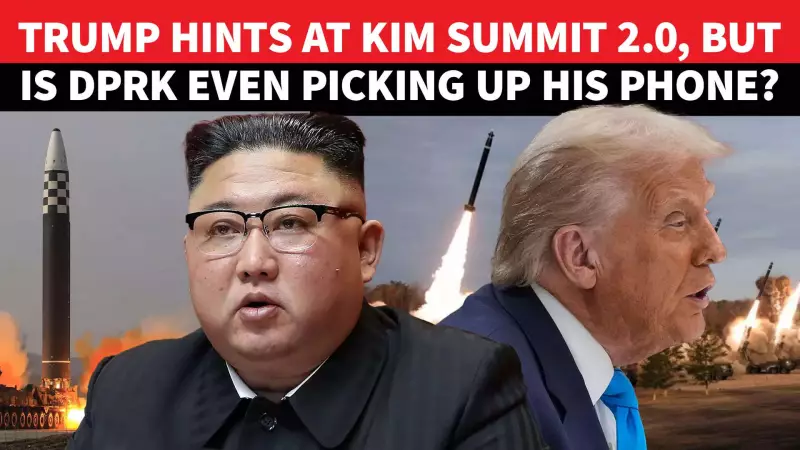
The prospect of a second historic summit between former US President Donald Trump and North Korean leader Kim Jong-un appears increasingly unlikely, despite their famous bromance and exchange of what Trump called "beautiful love letters." Multiple geopolitical factors are conspiring against another dramatic meeting between the two unconventional leaders.
The Nuclear Stalemate That Won't Budge
At the heart of the stalled diplomacy lies North Korea's unwavering commitment to its nuclear weapons program. While Trump and Kim's first summit in Singapore captured global attention with its pageantry and promises, substantive progress on denuclearization never materialized. North Korea has continued expanding its nuclear capabilities, conducting numerous missile tests that violate UN sanctions.
Russia's Growing Influence Complicates Matters
The deepening military cooperation between North Korea and Russia has dramatically altered the geopolitical landscape. Moscow's increasing reliance on Pyongyang for military supplies amid the Ukraine conflict has given Kim Jong-un new leverage and alternative partnerships, reducing his incentive to engage with American leadership.
The Mysterious "Love Letters" That Captured Imagination
Trump famously revealed his unusual correspondence with Kim, describing their exchange as "beautiful love letters" that demonstrated their personal chemistry. However, these personal connections have proven insufficient to overcome the fundamental disagreements on nuclear disarmament and sanctions relief that have plagued negotiations since their first meeting.
Why The Stars No Longer Align for Summit 2.0
Political Realities: With Trump focused on his presidential campaign and Kim strengthening ties with other global powers, the window for another summit appears closed. The domestic political considerations in both nations have shifted dramatically since their first encounter.
Strategic Calculations: North Korea seems content with its current position, having successfully established itself as a nuclear power while developing alternative alliances that reduce its diplomatic isolation.
Timing Challenges: The combination of upcoming US elections, ongoing conflicts, and changing global alliances creates an environment where high-stakes diplomacy between these particular leaders seems increasingly improbable.
The Trump-Kim relationship, once the centerpiece of international diplomacy, now serves as a reminder of how personal chemistry alone cannot resolve deeply entrenched geopolitical conflicts.






